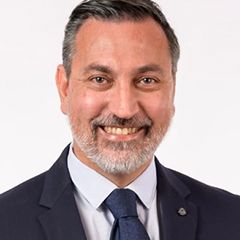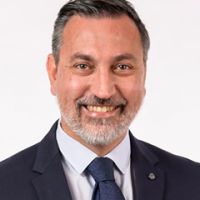
Miguel Feio
Miguel Feio works in the areas of Social Sciences with an emphasis on Educational Sciences, teaching History and Geography, Museology, and Cultural Project Management and is currently a PhD candidate in Sociomuseology with the project: “COSMUS – Museu Comunitário de Escola”.
Advisor: Mário Antas
Áreas de interesse académico e científico Areas of academic and scientific interest
- History and Geography
- Museology, Museums and Community Museums
- Education, Didactics and Pedagogy
- Heritage
- Innovation
- Inclusion
- UNESCO
- Citizenship
- Cultural diversity
Abstract
In an increasingly multicultural Europe, intercultural dialogue is the decoding key of this pluralism that makes it possible to reconcile the freedom of each citizen in its articulation with tolerance towards others.
Community school museums are intercultural spaces that contribute to the mitigation of conflicts and cultural, economic and social inequalities, which are so evident on this continent and around the world.
Once the problem has been identified, the question arises:
Are school community museums effective means of promoting intercultural dialogue and respect for difference?
Can community school museums be constituted as instruments to combat different forms of discrimination?
The European project COSMUS: Community School Museum, proposes the approach of strategies that promote social integration, improving intercultural understanding and the feeling of belonging to a community, focusing on the contexts of the school and museum inserted in a territorial space. It is also intended to enhance the European cultural heritage and its territory as a focal point for diversity and intercultural dialogue, through six community school museums in Europe, raising the awareness of the community, teachers and students between 3 and 18 years old, for the need and importance of knowing the local and regional heritage, establishing valuable interactions in the promotion of a dialogue of peace.
The processes to be used will involve promoting action research, a methodological approach in which the school community and partners collect evidence, in the daily pedagogical process, systematically analyzing them, in order to identify elements for the knowledge and improvement of a Community Museum of School and the community.
The present thesis proposal also seeks to analyze the dynamics of functioning inspired by museums of a sociomuseological nature, appropriate to the school reality, developing in students a participatory citizenship and a creative attitude that transforms reality, as well as deepening a critical and constructive sense around of tangible and intangible heritage issues. Therefore, it is also intended to develop students’ social and artistic skills, technological, plurilingual and intercultural literacy, communication, in a socio-museological, educational and community context.
The EU-LAC – Community Museums project, running since 2016, was established as a reference awakening an extraordinary sensitivity to museological reality, especially sociomuseology and its relationship with education. Knowing the concept of museology and community museology, the school community museum lacks a definition. The reality of a museum or ecomuseum, its physical and human resources are substantially different from a school space. This coexists with a formal institutional organization, a national curriculum to be implemented and qualified and heterogeneous human resources, with different career levels and expectations. We are hoping that these assumptions will lead to a new and innovative conceptual dimension.
The school and the museum are traditionally distinct spaces that complement each other. In this project, it is intended, on the one hand, to implement school community museums, through a fusion of school/museum spaces. On the other hand, a means of establishing a cultural learning platform that should result in a network of community school museums linked together, promoting strategic partnerships with museums, monuments, sites, associations, among other cultural spaces, which allow students and the community in general new learning, stimulating knowledge, defense, preservation and appreciation of the heritage of all of us. The result of this investigation should allow the definition of the school community museum concept.
The work methodology is structured from a set of research objectives. Their real objective is the Community Museum of Schools, Heritage and Social Development. The object of Study will be centered on School and Interculturality, which will articulate Sociomuseology with the scientific objective. Strategic partnerships are an empirical objective.
The construction of a community school museum, including the intellectual productions that support it, constitutes an educational, social and cultural innovation based on sociomuseology, inspiring the educational community to respect the diversity, memories and identities that pulsate at the heart of COSMUS.



